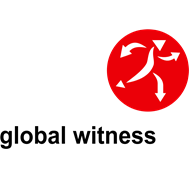
Introduction

There are 4 levels at which a PMO can operate:
- Enterprise level – EPMO (portfolio management);
- Division level (portfolio management and programme management);
- Business unit level (programme management and project management);
- Project level (project management).
Within each of these levels, the PMO structure which is set up maybe permanent, temporary, or a combination of the two.
A key point about PMOs is that there is no one-size-fits-all approach which works for all organisations. Every organisation has its own structure, culture, business goals, resources, policies and unique circumstances. When designing a suitable PMO structure, it is important to consider all these factors.
P3O model example
The P3O (Portfolio, Programme and Project Offices)[1] framework suggests an example PMO model shown on the diagram below.

London Olympics 2012 Programme Office example
The 2012 Olympics programme office was an example[2] of a successful PMO implementation. This PMO provided assurance to high-level government bodies. It also provided oversight role for the 4 main programme objectives.
Its key role was to act as a ‘critical eye’ by providing scrutiny, reviewing and reporting of performance, monitoring and measuring progress against programme delivery plans, and proactively challenging risks, issues and changes across the programme.
It used common standards for reporting performance to government and management dashboards for the governance bodies. The PMO reported to the Programme’s Senior Responsible Owner (SRO) and was empowered to challenge at the highest levels. It was mainly concerned with putting in the right framework, rather than imposing rigid standards.
The secretariat and office administration, finance and strategic communications functions were provided through separate but linked teams. This allowed the PMO to provide the ‘critical eye’ without having to worry about day-to-day operational functions.

PMO roles and responsibilities
The following are the project-level PMO roles and responsibilities.

PMO head
The purpose is to manage the PMO. The role requires strong leadership and management skills, and a strong knowledge of portfolio, programme and project management (PPM).
Responsibilities
- Develop and implement the terms of reference for projects;
- Work alongside others to define and implement the governance framework for projects;
- Working with business owners, project and team managers, create strategies for effective project planning, monitoring and delivery;
- Support the project manager when closing projects;
- Ensure there are no overlaps with other projects which are part of the same programme;
- Identify dependencies between projects;
- Provide an ongoing health check of projects by reassuring whether they will continue to meet their objectives;
- Report progress to the project manager and project board using management dashboards;
- Informing projects when strategy changes;
- Be responsible for the continual improvement of the PMO;
- Manage the PMO staff.
Project specialist
The purpose is to provide hands-on specialist support to the project manager(s).
The role provides consultancy to the project board(s) or project manager(s) in the form of advice and guidance or facilitated workshops. Workshops might include start up advice, risk analysis, scoping, planning and tailoring of methods.
At the start of a project this role works with the project manager to define an appropriate level of project governance and structured project management.
Responsibilities
- Provide a centre of expertise and develop consistent standards and procedures, templates and tailoring guidance. These should cover
- Project initiation;
- Risk analysis;
- Issue and change control analysis;
- Configuration management;
- Planning techniques;
- Methods and tools;
- Quality assurance;
- Project organisation structures.
- Brief project board and project assurance members on their roles and responsibilities;
- Provide a fast-track project support service;
- Design and support project reporting;
- Build and maintain a register of approved training courses;
- Build and maintain a repository of good project documentation.
Project officer/coordinator/administrator
The purpose is to improve the planning and delivery process by collecting and maintaining data in a consistent form.
Responsibilities
- Implement guidelines, procedures and templates to collect and maintain consistent data;
- Facilitate the creation and update of project plans;
- Implement regular progress reporting and monitor project progress;
- Assist the project manager in the collation of highlight reports;
- Establish and maintain an information management system;
- Establish risk, issue and change control processes and templates, and assist project staff in their delivery;
- Manage or facilitate the quality review process;
- Provide a coordination service for the project.
Functional roles
In addition to the role above, there are several functional roles which may be performed by either the project specialist or project officer roles. These are:
- Benefits and value – to ensure there is a consistent approach to benefits and value management on projects;
- Commercial – to ensure the organisation acts as an ‘informed customer’ when it comes to procurement and commercial contracts;
- Communications and stakeholder engagement – to ensure effective management of stakeholders;
- Information management – be the custodian of all master copies of project information;
- Consultancy and performance management – provide internal consultancy and expertise in project management processes;
- Finance – establish professional financial control within projects;
- Issue – ensure effective issue control processes are in place on projects;
- Change control – ensure effective change control processes are in place on projects;
- Planning and estimating – facilitate the development and maintenance of project plans and dependencies;
- Quality assurance – ensure the projects’ products are capable of realizing the benefits expected;
- Resource management – ensure that current and future projects have the right human resources with the right skills at the right time and ensure those resources are used efficiently;
- Risk – ensure that projects have effective risk management processes in place;
- Reporting – collect data and generate reports to different stakeholders;
- Secretariat/administrator – provide project administrative support;
- Tools expert – provide expertise in software tools which can support the change environment.
References
[1] AXELOS (2013). Portfolio, Programme and Project Offices. Norwich: TSO. p8.
[2] AXELOS (2013). Portfolio, Programme and Project Offices. Norwich: TSO. pp149-150.P3O® is a registered trademark of AXELOS Limited, used under permission of AXELOS Limited. All rights reserved.








